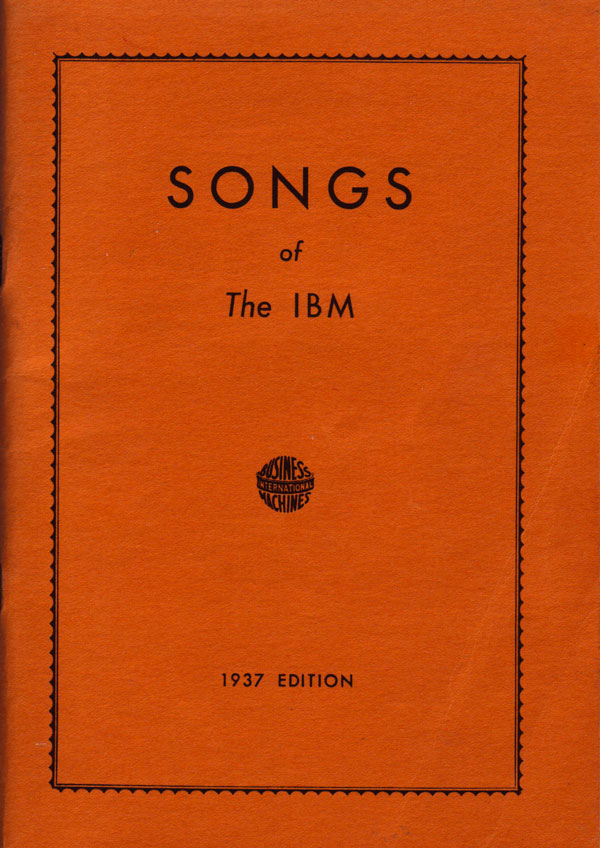Konrad Zuse: Der Computer – Mein Lebenswerk, 4th ed. (1970/2007) [German]
Filed under book | Tags: · biography, computing, history of computing

“Der erste funktionsfähige Computer wurde von Konrad Zuse gebaut. Er war 1941 betriebsbereit. Der Erfinder dieser ersten vollautomatischen, programmgesteuerten, frei programmierbaren, in binärer Gleitpunktzahlrechnung arbeitenden Rechenanlage wäre am 22. Juni 2010 hundert Jahre alt geworden. In diesem Buch erzählt er die Geschichte seines Lebens, das wie kaum ein anderes mit der Geschichte der bedeutendsten technischen Entwicklung seines Jahrhunderts verbunden ist – einer Entwicklung, die mit der „Abneigung“ des Bauingenieurstudenten Zuse gegen die statischen Rechnungen begonnen hat…”
First published by Moderne Industrie, 1970
Publisher Springer, 2007
ISBN 3540731393, 9783540731399
218 pages
Nathan Ensmenger: The Computer Boys Take Over: Computers, Programmers, and the Politics of Technical Expertise (2010)
Filed under book | Tags: · computing, history of computing, programming, software

Like all great social and technological developments, the “computer revolution” of the twentieth century didn’t just happen. People—not impersonal processes—made it happen. In The Computer Boys Take Over, Nathan Ensmenger describes the emergence of the technical specialists—computer programmers, systems analysts, and data processing managers—who helped transform the electronic digital computer from a scientific curiosity into the most powerful and ubiquitous technology of the modern era. They did so not as inventors from the traditional mold, but as the developers of the “software” (broadly defined to include programs, procedures, and practices) that integrated the novel technology of electronic computing into existing social, political, and technological networks. As mediators between the technical system (the computer) and its social environment (existing structures and practices), these specialists became a focus for opposition to the use of new information technologies. To many of their contemporaries, it seemed the “computer boys” were taking over, not just in the corporate setting, but also in government, politics, and society in general.
Ensmenger follows the rise of the computer boys as they struggled to establish a role for themselves within traditional organizational, professional, and academic hierarchies. He describes the tensions that emerged between the craft-centered practices of vocational programmers, the increasingly theoretical agenda of academic computer science, and the desire of corporate managers to control and routinize the process of software development. In doing so, he provides a human perspective on what is too often treated as a purely technological phenomenon.
Publisher MIT Press, 2010
History of Computing series
ISBN 0262302829, 9780262302821
320 pages
publisher
publisher
google books
Songs of The IBM (1931-)
Filed under booklet | Tags: · computing, corporate culture, music

“[Since the year 1900], the gatherings and conventions of our IBM workers have expressed in happy songs the fine spirit of loyal cooperation and good fellowship which has promoted the signal success of our great IBM Corporation in its truly International Service for the betterment of business and benefit to mankind.
In appreciation of the able and inspiring leadership of our beloved President, Mr. Thos. J. Watson, and our unmatchable staff of IBM executives, and in recognition of the noble aims and purposes of our International Service and Products, this edition of IBM songs solicits your vocal approval by hearty cooperation in our song-fests at our conventions and fellowship gatherings.” (from introduction)
Publisher International Business Machines Corporation, New York, 1931
45 pages
music clips
publisher and more information about IBM’s music and bands
commentary (Rob Weir)
PDF (1931 edition)
PDF (partial reproduction of the 1935 edition)
PDF (1937 edition)
PDF (1940 edition)

